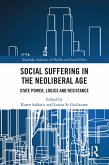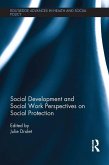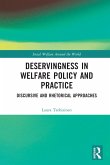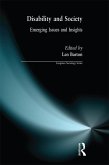The essence of welfare conditionality lies in requirements for people to behave in prescribed ways in order to access cash benefits or other welfare support. These conditions are typically enforced through benefit 'sanctions' of various kinds, reflecting a new vision of 'welfare', focused more on promoting 'pro-social' behaviour than on protecting people against classic 'social risks' like unemployment.
This new book in Routledge's Key Ideas series charts the rise of behavioural conditionality in welfare systems across the globe, its appeal to politicians of Right and Left, and its application to a growing range of social problems. Crucially it explores why, in the context of widespread use of conditional approaches as well as apparently strong public support, both the efficacy and the ethics of welfare conditionality remain so controversial. As such, Welfare Conditionality is essential reading for students, researchers, and commentators in social and public policy, as well as those designing and implementing welfare policies.
Dieser Download kann aus rechtlichen Gründen nur mit Rechnungsadresse in A, B, BG, CY, CZ, D, DK, EW, E, FIN, F, GR, HR, H, IRL, I, LT, L, LR, M, NL, PL, P, R, S, SLO, SK ausgeliefert werden.
"What the book does unambiguously show is - as the introduction suggests - that conditionality is intensifying in welfare systems across the world. It is this fact that makes this book timely and important." -Citizens Basic Income Trust, 22nd July 2018
"Readers of this journal will be most interested in the author's wide-ranging discussion
of housing policy and practice as a key site for conditionality (p.67). This
includes exploration of various themes including criminalisation of vagrancy,
banning food distribution and use of anti-social behaviour orders. It also reviews
recent UK trends towards more conditional, probationary and renewable social
housing tenancies and the tendency towards segregated 'very social' housing
practices in France, Austria and Sweden." - Dr. Mary P. Murphy, Department of Sociology, Maynooth University, Ireland
"This is a really excellent book. It is thoughtful, reflective and well informed, and reaches some very sane and sensible, albeit controversial, conclusions. It is the latest title in Routledge's Key Ideas series, which is committed to publishing "critical essays rather than literature reviews, offering lively and original treatments of their subject matter". Welfare Conditionality does just that and, like a number of other titles in the series that have already done so, it deserves to go into several editions. The blurb says that the book is essential reading for "students, researchers and commentators in social and public policy, as well as those designing and implementing welfare policies". This is undoubtedly the case but the publishers could have added that it is also essential reading for students, researchers and practitioners in social security and housing law." - Michael Adler, Emeritus Professor of Socio-Legal Studies, School of Social and Political Science, University of Edinburgh
"Welfare Conditionality' by the two eminent housing and social policy scholars Beth Watts and Suzanne Fitzpatrick is an excellent addition to the 'Key Ideas' series of Routledge. In a very engaging and comprehensible manner, the book takes a deep dive into the matter of what welfare conditionality is, how it evolved over time, who is subjected to it, and what its personal but also soci-etal consequences are. 'Welfare Conditionality' is the result of a 5-year long research project funded by the ESPRC in the UK. The book espouses an effort-less and well-informed interdisciplinary approach, combining legal, moral philosophical, social policy, as well as behavioural perspectives on conditional-ity. Another core strength of the book is that although it is not empirical as such, international evidence is used to support theoretical reasoning illustratively."- Christian Lennartz, Housing Researcher, Dutch Environmental Assessment Agency









